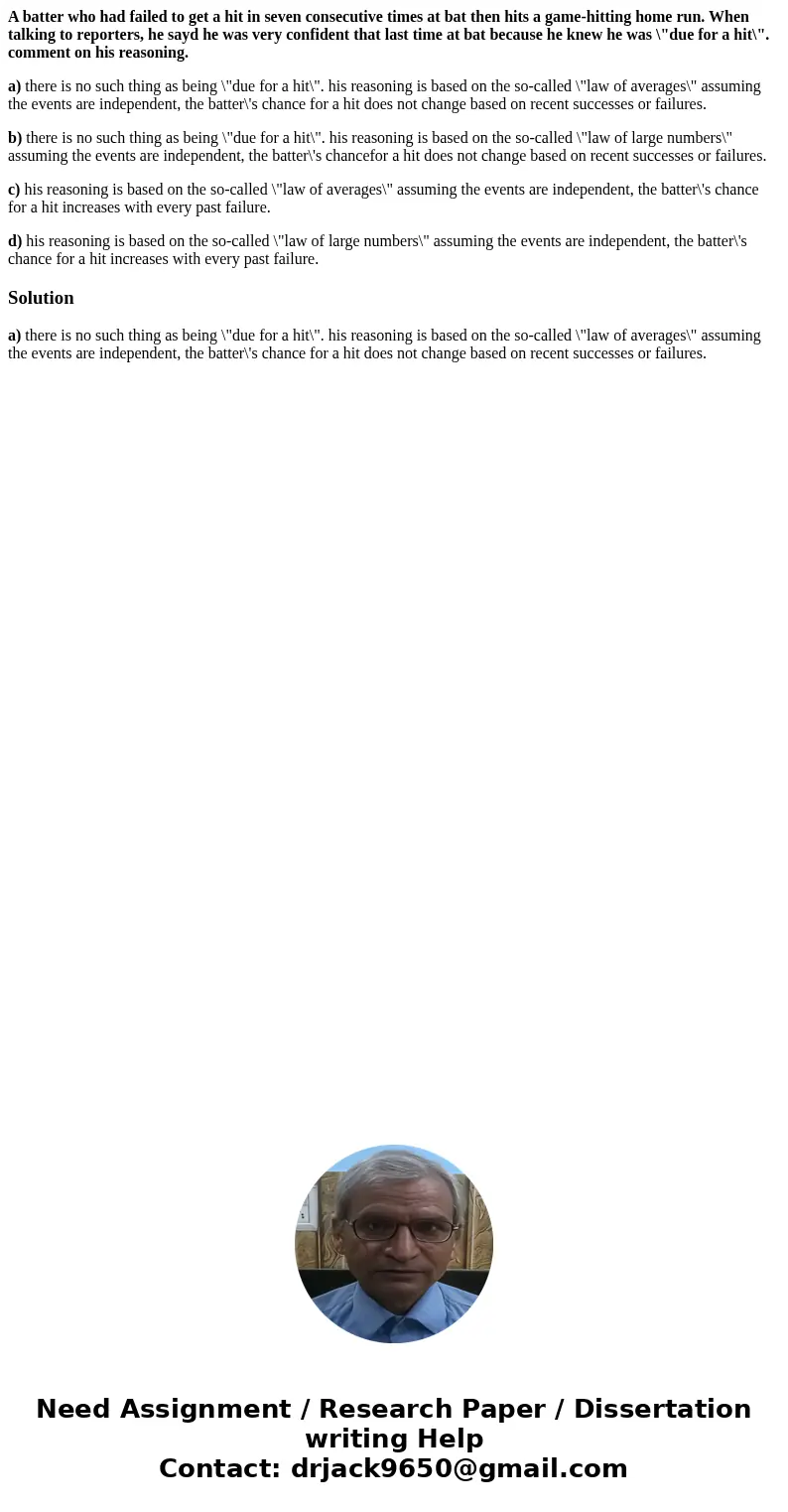A batter who had failed to get a hit in seven consecutive ti
A batter who had failed to get a hit in seven consecutive times at bat then hits a game-hitting home run. When talking to reporters, he sayd he was very confident that last time at bat because he knew he was \"due for a hit\". comment on his reasoning.
a) there is no such thing as being \"due for a hit\". his reasoning is based on the so-called \"law of averages\" assuming the events are independent, the batter\'s chance for a hit does not change based on recent successes or failures.
b) there is no such thing as being \"due for a hit\". his reasoning is based on the so-called \"law of large numbers\" assuming the events are independent, the batter\'s chancefor a hit does not change based on recent successes or failures.
c) his reasoning is based on the so-called \"law of averages\" assuming the events are independent, the batter\'s chance for a hit increases with every past failure.
d) his reasoning is based on the so-called \"law of large numbers\" assuming the events are independent, the batter\'s chance for a hit increases with every past failure.
Solution
a) there is no such thing as being \"due for a hit\". his reasoning is based on the so-called \"law of averages\" assuming the events are independent, the batter\'s chance for a hit does not change based on recent successes or failures.

 Homework Sourse
Homework Sourse